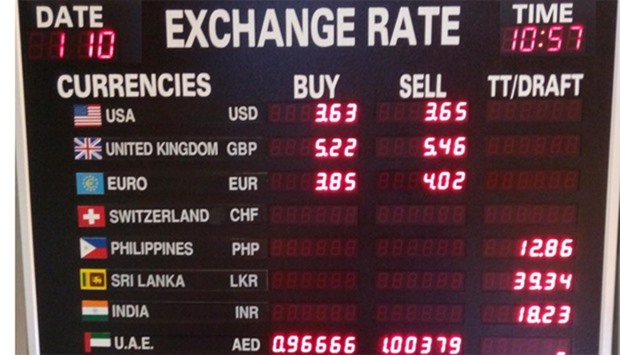Similarly, he added that government austerity measures and downsizing by some major companies, particularly in the oil and gas sector, have also affected the performance of exchange houses here.
“Within three to six months, we will be feeling the effects of these measures and ultimately, exchange houses will feel the impact of this cycle. Most of the companies here have started downsizing their workforce and this will affect the amount of remittances sent,” the source explained.
Asked about the overall performance of Qatar-based exchange houses in 2015, the source said “there were no issues” despite the oil price slump, “but it may affect our operations further if the crisis will continue this year.”
“Generally, the market was affected by the oil crisis. When oil prices went down, obviously the economy had shrunk, which, overall, had created an impact on the market,” he said.
On the other hand, he also stressed that many people have gained from weakening expatriate currencies.
This was echoed by Al Zaman Exchange operations manager Zubair Abdul Rahman, who told Gulf Times that the devaluation of currencies did not affect their operations.
“The devaluation of some currencies has encouraged more remittances from Qatar-based expatriates. Foreign exchange rates have remained favourable to expatriates,” he said.
However, the source said population growth, higher living costs, rent inflation, and rising costs of education are among the factors that will affect remittances in 2016.
“The effects of inflation and similar factors such as job security will be felt more this year as prices of commodities, rents, and cost of education have gone up.
He added: “Many people used to take out loans and take advantage of weakening currencies in order to send money back to their home countries. But the situation now is different and many people have opted to play it safe.
“They are taking lesser loans or none at all because they are not sure of their job security. Instead, many expatriates attempt to repay their loans as soon as possible to reduce the risk burden.”
He also said budget cuts in the government “will also make everyone cautious” thus, changing consumers’ spending habits.
“When there is a budget cut, everyone will be cautious and this will affect even the spending habits of people. We are in the business of foreign currency exchange and it is mainly used by people who travel, either for business or for leisure. Even that will be affected,” he said.

